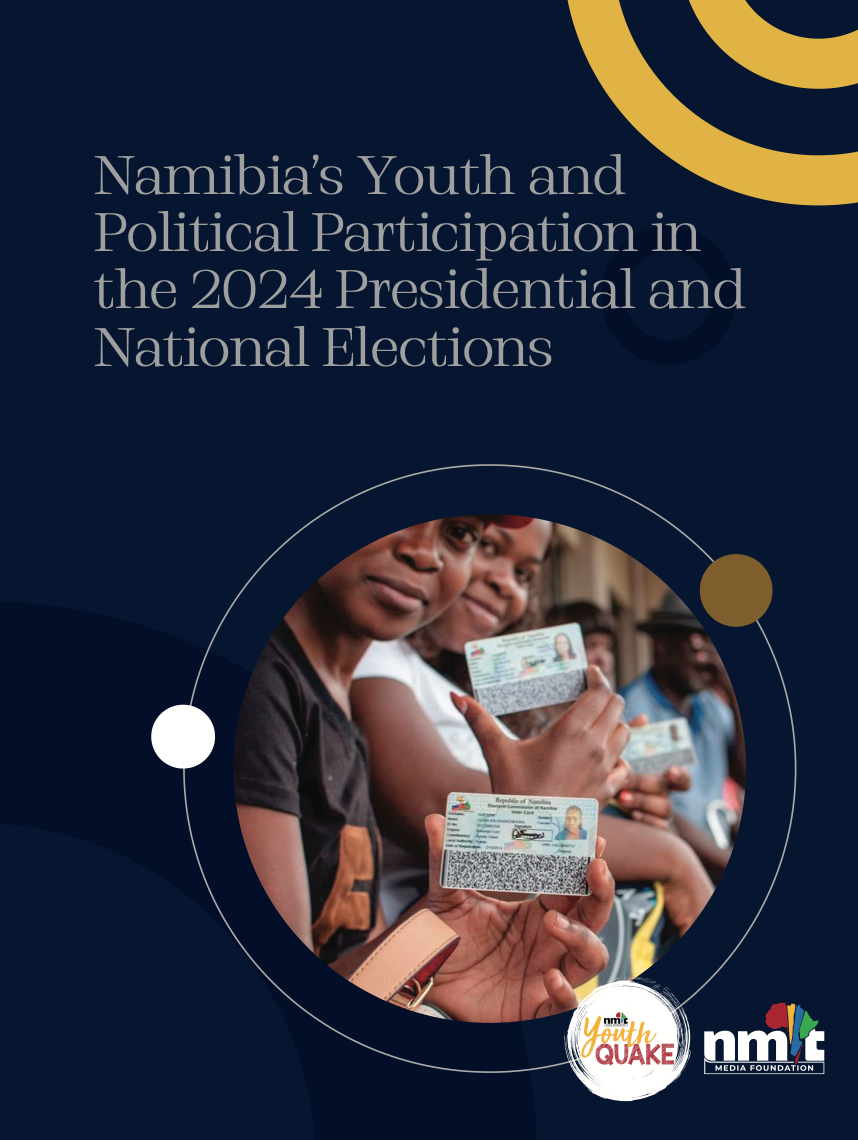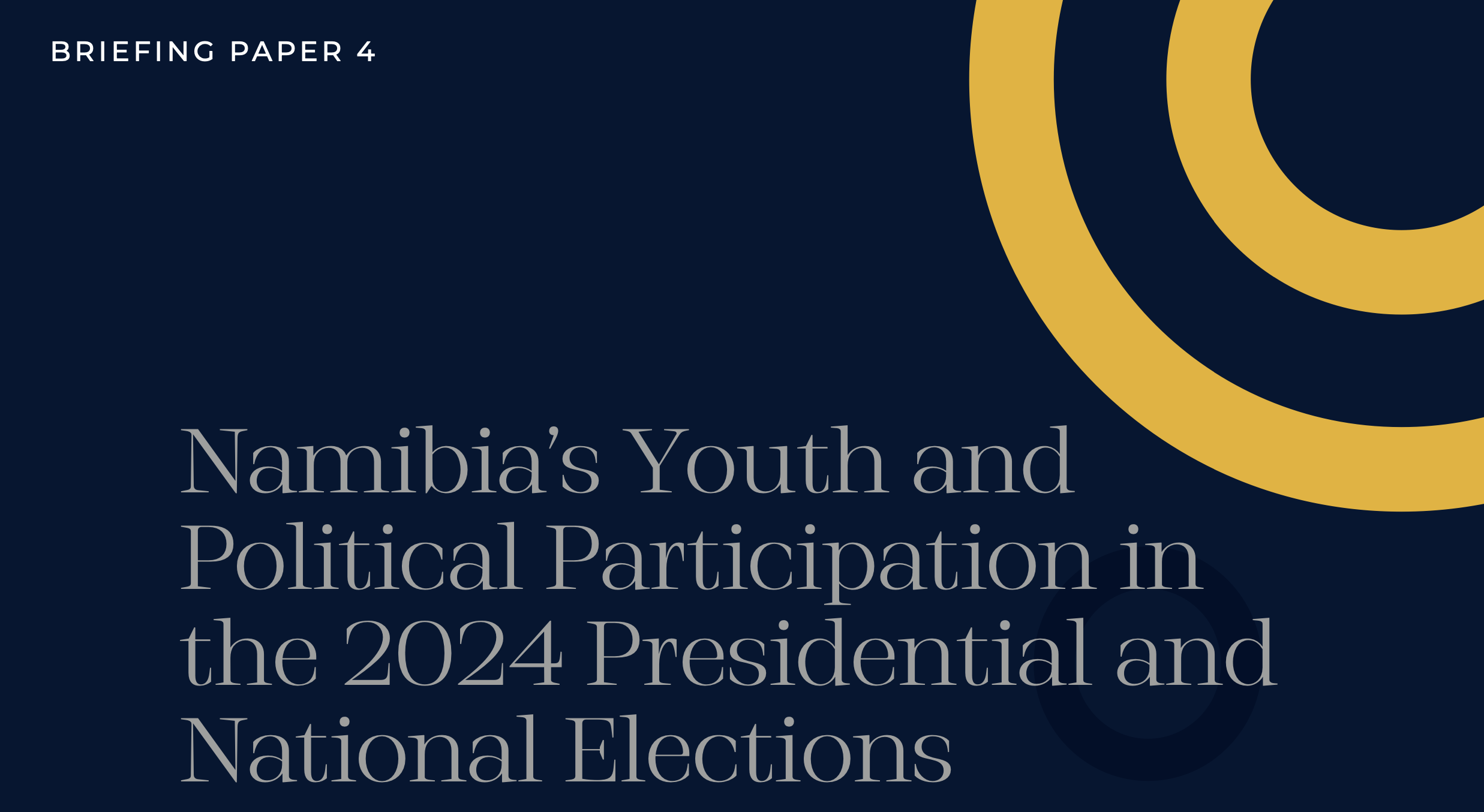Published in 2025 by the NMT Media Foundation
“I saw a lot of people online explaining why voting is important. That pushed me to go vote.”
Young Namibian Voter, 2024
Namibia’s Youth and the 2024 Elections: Disillusionment and determination
Namibia’s 2024 Presidential and National Assembly elections offered a revealing glimpse into how young people view politics and elections – and the results are as complex as they are important. A new report, Namibia’s Youth and Political Participation in the 2024 Presidential and National Elections, explores these dynamics through focus group discussions across the country.
“Politicians come and promise us jobs and development, but nothing changes. It’s the same story every election.”
Young Namibian Voter, 2024
One key question emerges: How do young Namibians really feel about politics?
The study found a sharp tension. Many young people voiced deep scepticism about elections as a vehicle for change. Participants described politics as a cycle of empty promises. “They come to us with promises when they need votes, but once they win, we never hear from them again,” one youth said.
This disillusionment was particularly pronounced among unemployed youth, who expressed frustration at the lack of economic opportunities despite repeated campaign promises to address joblessness.
Others felt that voting was little more than an obligation: predictable outcomes meant their individual ballots seemed powerless.
“It was my first time voting, and I felt like I was finally part of something bigger than myself.”
Young Namibian Voter, 2024
Yet, the same elections also witnessed a rise in youth voter turnout compared to 2019. For many, casting a ballot was less about expecting change and more about fulfilling a sense of civic duty or belonging. First-time voters described the act as empowering: “It was my first time voting, and I felt like I was finally part of something bigger than myself,” one participant reflected.
The report also highlights the barriers young Namibians face in participating. Socio-economic inequality and unemployment left many prioritising survival over politics. Institutional inefficiencies – from long queues to ballot shortages – tested patience and trust. Psychological barriers, including disillusionment and fear that “nothing will change,” discouraged others. Cultural expectations, generational pressures and persistent gender norms further limited independent political choice. On top of this, misinformation circulating on social media complicated decision-making and fuelled mistrust.
“I stood in line for hours only to be told I was at the wrong polling station. By the time I got to the right place, I was too tired to care.”
Young Namibian Voter, 2024
Still, the study points to several motivators that kept youth engaged. The hunger for change was powerful: frustration with governance inspired many to vote. Peer networks also mattered – friends, family and social media campaigns created motivation and pressure to participate. The emergence of younger candidates gave some voters hope, offering a glimpse of representation long denied. For others, simply exercising the right to vote carried symbolic significance, marking entry into full citizenship.
“People chose to vote because they were frustrated. They were tired of the system.”
Young Namibian Voter, 2024
Taken together, these findings show that Namibia’s youth are not politically apathetic. They are engaged – but on their own terms, navigating between cynicism and hope. For policymakers, political parties, and civil society, the lesson is clear: youth participation is critical to the health of democracy, but it requires genuine inclusion, accountability and reforms that address young people’s lived realities.


